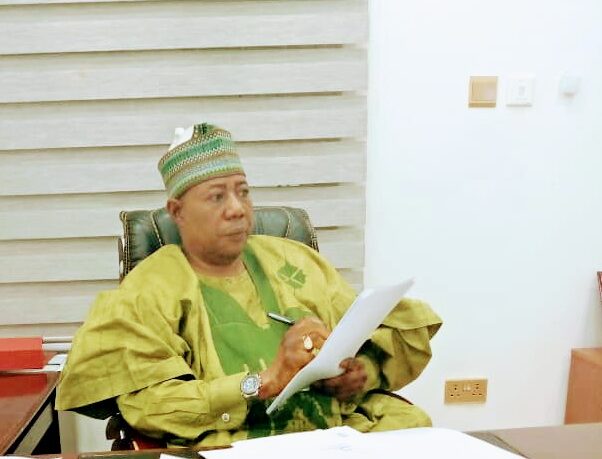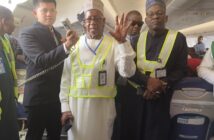The repeat of historical mistakes that is gradually sliding the West African subregion back into the dark days of military dictatorship was on Friday, July 26 compounded following the military coup d’etat in the Uranium-rich but impoverished West African country, the Republic of Niger.
This is so bad that countries that were hitherto applauded for democratic stability has plunged back into authoritarian regimes. Guinea, Chad, Mali, Burkina Faso, Niger and the clandestine moves penultimate week in Sierra Leone that culminated in the arrest of top military brass is a sad example of how the region is drifting disorderliness and chaos.
The Niger coup is an affront and a speck in our eyes. ECOWAS Chairman, Nigeria’s President Bola Ahmed Tinubu has demonstrated that except a stop is put to this menace, the bushfire or domino effects will be better imagined.
Toeing the path of coup and counter coup is a repeat of historical mistakes because the subregion had suffered untold hardship in the hands of cruel dictators before democracy was eventually restored. The ECOWAS subregion lost too many sound pro-democracy activists to crude machinations of daredevil dictators and incarceration.
The ECOWAS position on the procedure for assuming leadership in ECOWAS subregion is unambigous. It is contained in its Protocol adopted in 2001. It states that the only path to ascension of power is through a free, fair and transparent election. Which means that apart from the fact that it condemns military takeover of government, it also condemns flawed elections.
In fact, the democracy that is being taken for granted now was earned through the tears, sweats and blood of the gallant once who were courageous enough to face autocratic rulers in the 90s.
When leaders of the 15 countries that makes up the subregional body, Economic Community of West African States (ECOWAS), thrusted the leadership of the 50-year-old organisation on President Tinubu less than two three weeks in office, they knew exactly what they were doing. Their confidence in his leadership was exemplified by the swift and furious manner in which he reacted to the military takeover in Niger. It also goes to validate his own democratic credentials and a demonstration of his disdain for autocratic forms of government.
Two wartime leaders, Abraham Lincoln and Winston Churchill, bored their minds on democracy as the best form of government. “Democracy is the government of the people, by the people, for the people,” said Lincoln, while Churchill noted: “Democracy is the worst form of Government except for all those other forms that have been tried from time to time”. From the foregoing, it is understood that democracy expands avenue for citizen engagement and freedom of expression and self determination as against other forms of government.
In a stubborn adherence to the foregoing, Tinubu has again and again re-enforced his belief in the ability of democracy to create a better quality of all people through spread opportunities and shared prosperity. The ECOWAS chairman is a renowned peace diplomat and a bridge builder on the continent of Africa. But when it comes to toying with the destiny of democracy in the subregion, Tinubu’s red-eye is not in doubt.
Like in the 80’s when Nigeria-led ECOWAS standby force known as ECOMOG to intervene in the Liberian civil war and also restore democracy in Sierra Leone, after an emergency meeting, ECOWAS, under Tinubu’s leadership, had handed the coupists a 7-days ultimatum to restore democratic order in Niger Republic. He also ordered the Army Chiefs of the member countries to perfect strategies on how to approach the operation in Niger, in the event of refusal of General Abdourahamane Tiani and his renegade soldiers to reinstate the deposed President Mohamed Bazoum.
It is instructive to advise that ECOWAS should be proactive in picking intelligence before coup takes place. In this regard, I have eight recommendations that, if carefully adhered to, can assist the ECOWAS chair in realising his mission in the subregional body. The eight key factors or pillars comprises of positive democratic system advise, well functioning ECOWAS States’ legal framework, sound economic business development structures, equitable distribution of resources within ECOWAS States, respect for the rights of others by ECOWAS States, enhanced intra-ECOWAS trade and relations, free flow of intelligence security information, high level capital development and vigorous fight against corruption.
As a matter of high priority, the ECOWAS chairman needs to establish intelligence peace development research techniques which is aimed at understanding the causes, dynamics of millitary coup and effect of war, conflicts and poverty, as well as the conditions for stable and sustainable democratic peace and development in Africa. For one, conflicts destroys lives and stunt development. Investigation revealed that more than 1.5 billion people across the world are affected by violent conflicts. Also, 59.5million are currently forcibly displace world wide, while 19.5 million of them are refugees, of wich half are children.
The Niger coup, if allowed to stay, will emboldened other Coupists around the subregion, who may be preparing to carry that kind of dastardly act against democracy. The coup is embarrassing that regional leaders, blocs and the United Nations have all condemned it. The UN chief, Antonio Guterres, condemned “any effort to seize power by force,” and urged respect for Niger’s constitution, while the United States expressed deep concern and called for Bazoum to be released.
On its part, the African Union condemned the “coup attempt” and called on Nigeriens and Africans to “join their voices in unanimous condemnation of this coup attempt, and for the immediate and unconditional return of the felon soldiers to their barracks”.
To enhance democratic system on the African continent and ECOWAS community, the regional groups must encourage dialogue that could engender regional democratic peace structure to create safe spaces, to encourage discussions within the operational communities and mediate between different political structure.
A broad approach to development will also contribute to peace building. A focus on inter alia, justice, human rights, peace and security is important. No meaningful development can take place in Africa in the absence of peace, education, health. Where that is the case, structure break down, and political structure systems infrastructure disintegrate, and legal commerce is crippled. Frankly speaking, peace also frees up resources for both political, economic and human capital development.
Let me also remind those kicking against President Tinubu’s active involvement in the coup in Niger that the actions of any state on the international scene are solely determined by the foreign policies of such a state. Nigerian foreign policy is anchored on two major principles as stapulated in section 20 of the 1999 constition (as amended). They include the promotion and protection of African integration of national interest, and the promotion of African integration and support of the continent’s unity.
Also, in the seven cardinal principles of Nigeria’s foreign policy, Africa is the centre peace and good neighbourliness is an integral part of it. The distinguished nature of Nigeria in terms of size, population, and vast resources makes her the frontier in African democratic system. This implies that whatever happens in any part of Africa automatically becomes a concern to Nigeria.
Through its bilateral relations with other African States, Nigeria has been performing the big brother role excellently, just like the the United States of America, Great Britain, France, Germany, Russia, and China are doing in their respective regions. That is why Nigerian presidents have remained major principal peace builders on the continent.
May God Save Nigeria and Africa!
Malagi’s Ministerial Appointment, Round Peg In Round Hole
On a final noted, let me sieze this opportunity to congratulate an erudide son of Northern Nigeria, the publisher of Blueprint Newspapers, Mohammed Idris Malagi, for his appointment by President Bola Ahmed Tinubu as one of his cabinet members. Malagi made the first batch of ministerial nominees released on Thursday.
His nominationsl goes a long way to confirm the president’s nack for identifying and engaging the best brains in governance. Malagi has achieved extraordinary success as a publisher, skilled PR expert and brand builder. There is no dout that media chief and Kakaaki Nupe will replicate this feat in his next assignment as minister of the federal republic of Nigeria.
– Ibrahim is director, Communication and Strategic Planning, of the Presidential Support Committee (PSC).



